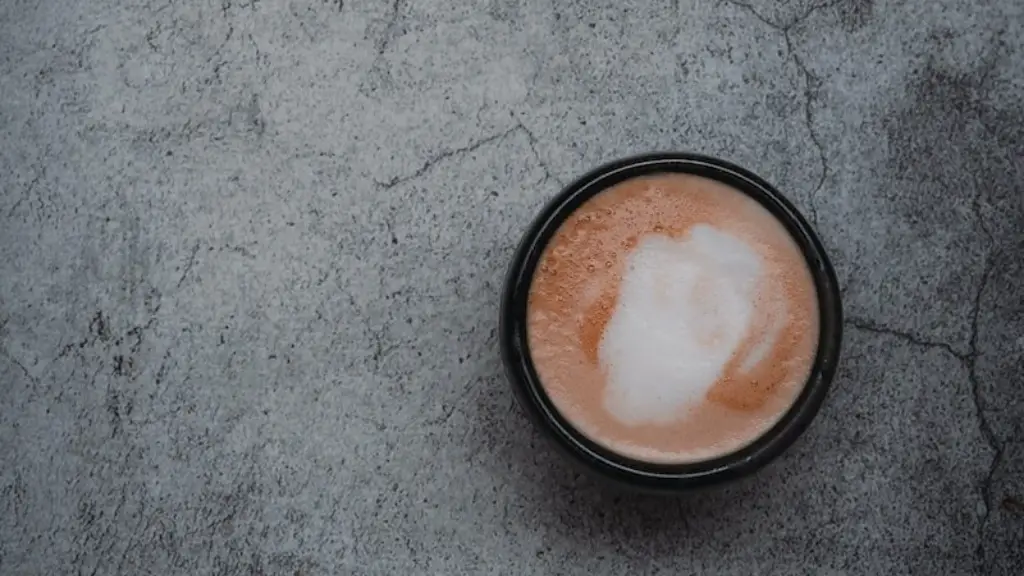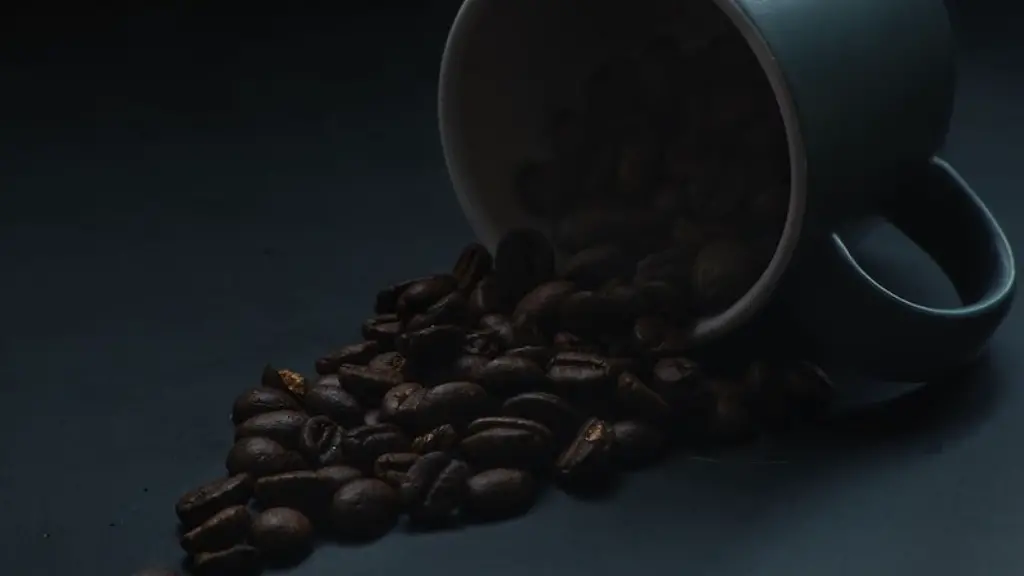Decaf Coffee at Starbucks
Decaf coffee is becoming increasingly popular among coffee drinkers. Starbucks has developed a wide range of decaf coffees, each with its own unique flavor and aroma. The question that comes to mind for many people is, how much caffeine is in decaf coffee at Starbucks?
Caffeine naturally occurs in coffee beans, so even decaf coffee contains a small amount of caffeine. According to Starbucks their decaf coffee contains 12-13mg of caffeine per 8-ounce cup, which is over 90% less caffeine than normal coffee. But it should be noted that caffeine content can vary depending on the type of coffee and how it is brewed. Starbucks’ decaf coffee is made using the Swiss Water Process, which removes any caffeine content.
Research conducted by the Mayo Clinic has found that moderate caffeine consumption up to 400mg per day has no adverse effects for healthy adults. This means that drinking one cup of Starbucks decaf coffee does not exceed the recommended caffeine intake. Therefore, drinking decaf coffee at Starbucks is a safe and healthy choice, especially for those who prefer not to consume regular coffee.
Additionally, decaf coffee is a great option for those who want to enjoy a cup of coffee without the potential side effects of caffeine. Some of these side effects can include: an increased heart rate, headaches, anxiety, and irritability. Therefore, if these conditions are an issue for you, swapping coffee for decaf may help manage your caffeine intake and reduce these symptoms.
Despite its lower caffeine content, decaf coffee has the same flavor profile and aroma as regular coffee. It is made with the same quality Arabica beans, so it tastes just as good. Starbucks also offer a range of different roasts and flavored decaf coffees, so you can find the perfect decaf option for you.
If you are looking for a great cup of coffee without the caffeine hit, then decaf coffee at Starbucks is great option.
Health Benefits of Decaf Coffee
Decaf coffee can offer some great health benefits. Studies have shown that drinking decaf coffee can reduce the risk of diabetes, stroke and other cardiovascular diseases. Furthermore, decaf coffee also contains antioxidants, which help protect the body from cell damage.
Decaf coffee also contains two minerals that can positively impact your body; magnesium and potassium. Magnesium helps the body convert food into energy and potassium is important for proper heart function. Therefore, having decaf coffee provides you with essential minerals and can be beneficial for overall health.
However, it should be noted that decaf coffee still contains a small amount of caffeine and too much can be harmful. Therefore, it is important to keep track of how much decaf coffee you drink each day. Additionally, adding sugar and cream to your decaf coffee will add calories and sugar to your diet, so it is important to stay mindful of these additions.
Overall, decaf coffee can provide some great health benefits, but it should still be enjoyed in moderation.
Flavor Profile of Decaf Coffee
Decaf coffee may have less caffeine, but it still contains the same flavor-packed ingredients. Starbucks uses Arabica beans in all its decaf coffees and these beans are known for their smooth flavor. Additionally, each variety of decaf coffee also has its own unique flavor profile.
For example, the Decaf Pike Place Roast is probably the most popular decaf coffee that Starbucks offers. It has a smooth, well-rounded flavor with subtle notes of cocoa and toasted nuts. The Decaf House Blend offers notes of nut and caramel, while the Decaf Kenya is bold and full-bodied with sweet citrusy acidity.
In addition to regular decaf coffee, Starbucks also offers decaf espresso drinks. These drinks are made with the same ingredients as their regular espresso drinks, just with decaf espresso shots. Therefore, you can still enjoy the flavor of Starbucks’ espresso drinks, without the caffeine.
Overall, decaf coffee at Starbucks still has a great flavor and aroma, so it is still a great choice for those looking for a tasty bean-based drink.
Impact on Performance
Caffeine can have a positive effect on physical performance, as it has a stimulant effect on the body. Therefore, some may be wondering whether switching to decaf coffee might have an effect on performance.
A study conducted by the University of Innsbruck in Austria found that caffeine increased power output during short-term, high intensity exercise. However, this increase in power was not seen among those who drank decaf coffee. Therefore, it appears that switching to decaf coffee may impact performance in high intensity exercise, but not in everyday activities.
Furthermore, if you are in an environment where you need to stay focused and alert, then it may be beneficial to go for a cup of regular coffee. According to a study conducted by the National Institutes of Health, caffeine can improve focus, alertness, and reaction time.
Overall, while decaf coffee may contain a small amount of caffeine, it does not offer the same stimulant effects as regular coffee, so it is not a great choice when it comes to improving physical performance.
Environmental Benefits of Decaf Coffee
In addition to the health benefits of decaf coffee, there are also many environmental benefits. Decaf coffee is made with fewer chemicals than regular coffee and it takes less energy to produce. Additionally, decaf coffee can be produced with fewer inputs than regular coffee, meaning it has a lower carbon footprint.
Decaf coffee also requires less water than regular coffee. This is because the Swiss Water Process removes the caffeine from the coffee beans without the need for a large quantity of water. This means that decaf coffee can be produced in a more sustainable way.
In addition, Starbucks only sources decaf coffee from sustainable sources. This means that the suppliers adhere to environmental standards, such as those set by the Rainforest Alliance. Therefore, when you buy decaf coffee at Starbucks, you can be sure that it has been produced in an environmentally friendly way.
Overall, decaf coffee can be an environmentally friendly option and Starbucks is committed to sustainable coffee production.
Economic Impact of Decaf Coffee
Decaf coffee is becoming increasingly popular among coffee drinkers and this is having an economic impact on the industry. As demand for decaf coffee increases, so do the prices. Additionally, it can be more expensive to produce decaf coffee, due to the costly Swiss Water Process.
Therefore, if you are looking for an affordable option, regular coffee may be a better bet. However, it is worth bearing in mind that the number of decaf coffee drinkers is growing, so demand for decaf is increasing too. This means that over time, the cost of decaf coffee may become more competitive.
Overall, decaf coffee is becoming increasingly popular and this is having an economic impact on the industry.
Investment Opportunities in Decaf Coffee
The growing popularity of decaf coffee is creating investment opportunities for those looking to make the most of this emerging industry. Several companies are starting to get involved in decaf coffee production and the number of brands is increasing. This means that there is potential for more investment in the near future.
Also, many coffee companies are beginning to turn their attention to sustainability. This means that investing in environmentally friendly practices, such as the Swiss Water Process, may become more attractive to investors. Therefore, decaf coffee production may become the focus of investments in the near future.
Overall, the decaf coffee industry is a great opportunity for investors and this will only increase in the future.
Conclusion
Decaf coffee is becoming increasingly popular and Starbucks offers a wide range of decaf options. The caffeine content of Starbucks decaf coffee is 12-13mg per 8-ounce cup, which is well below the recommended daily limit. Additionally, decaf coffee comes with some great health benefits and it also has a great flavor profile.
However, it should be noted that drinking decaf coffee instead of regular coffee may have an impact on performance, as the stimulant effects of caffeine are not present. Additionally, investment opportunities are emerging in the decaf coffee industry, so this may be an attractive option for investors.





